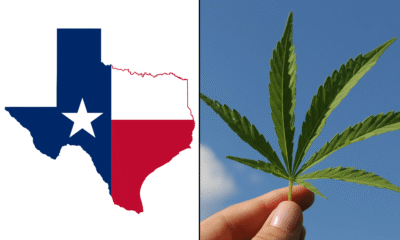A New York state judge on Thursday blocked cannabis regulators from reviewing retail license applications submitted by prospective social-equity marijuana sellers who hadn’t secured store locations before November 2023, dealing another setback to the state’s rocky rollout of its adult-use market.
New York Supreme Court Justice Sharon A. Graff granted a preliminary injunction that affects hundreds of conditional adult-use retail dispensary (CAURD) applications and other provisional license seekers, according to court documents first obtained by Law360.
The ruling stems from a May petition filed by four companies – Organic Blooms LLC, Niagra Nugget LLC, Blackmark LLC and Windward Management LLC – who argued the New York State Office of Cannabis Management exceeded its authority by waiving key requirements for early applicants.
At the crux of the dispute is whether regulators could allow CAURD applicants to submit applications without first securing retail locations and notifying local municipalities – requirements explicitly mandated by the state’s 2021 marijuana law for all cannabis retail license applicants.
“The petition and supporting papers adequately asserts that the secured location and Municipal Notice Requirements are mandatory pre-requisites to filing an application,” Justice Graff wrote in her 14-page decision.
The court also found regulators likely violated state law by opening CAURD applications roughly a year before other social equity applicants could apply, despite statutory language requiring the initial application period “be opened for all applicants at the same time.”
State officials had argued in June that granting an injunction would be “financially ruinous” to hundreds of applicants and cause “widespread, and wholly unjustified, disruption” to New York’s emerging cannabis market. The ruling particularly impacts about 340 pending CAURD applications, the court noted.
Thomas G. Spanos, attorney for the petitioners, called the decision “a victory for all retail dispensary applicants who have been paying bills for locations for over a year,” according to Law360.
Pushing pressure
The injunction marks the latest obstacle for New York’s cannabis market, which has struggled with a slow licensing rollout and saturation due to widespread unlicensed operators. Of approximately 1,799 retail applications filed during last November’s window and another 3,789 in December for dispensaries, many remain unprocessed, according to officials earlier this week.
About 261 recreational shops are currently operating statewide, up from just 40 in December 2023. More than 5,000 total cannabis business applications from last December’s licensing window remain under review, including for retailers, growers and other license types. Many applicants voiced frustration at the Cannabis Control Board meeting on Tuesday over prolonged waiting periods while paying thousands in monthly rent for secured locations.
The average monthly revenue per dispensary has declined from about $900,000 to $450,000 as competition increases, with about 60% of stores tracking below $1 million in annual revenue, according to John Kagia, OCM’s policy director said at the meeting.
“This market is going to get increasingly competitive as we open more doors,” Kagia told the board.
The ruling specifically highlights how proximity restrictions are complicating the licensing process. Cannabis regulations prohibit dispensaries from operating within 1,000 feet of each other in cities with populations over 20,000, or within 2,000 feet in smaller municipalities, absent a waiver.
One petitioner, Blackmark LLC, already lost proximity protection to a CAURD applicant who secured a location after receiving provisional approval, the court noted. Such scenarios create a catch-22 where applicants must maintain costly retail leases without guarantee of approval while potentially losing location rights to later applicants.
“The irreparable nature of this harm exacerbates the loss market share/first mover advantage petitioners face as a result of respondents’ actions,” Justice Graff wrote.
The case also follows a May 2024 state audit ordered by Gov. Kathy Hochul that identified similar concerns about location conflicts in the application process, according to court filings.
The ruling allows regulators to continue processing applications from November window applicants who had secured locations and completed municipal notifications before the deadline, potentially providing some movement in the market while the broader legal issues are resolved.
A scheduling conference is set for December 18 to determine next steps in the litigation.
2273000-2273441-904497_24_organic_blooms_llc_et_v_organic_blooms_llc_et_decision___order_on_50

 California Cannabis Updates1 year ago
California Cannabis Updates1 year ago
 Breaking News1 year ago
Breaking News1 year ago
 best list1 year ago
best list1 year ago
 Business12 months ago
Business12 months ago
 cbd1 year ago
cbd1 year ago
 Bay Smokes1 year ago
Bay Smokes1 year ago
 autoflower seeds12 months ago
autoflower seeds12 months ago
 cannabis brands12 months ago
cannabis brands12 months ago

















































